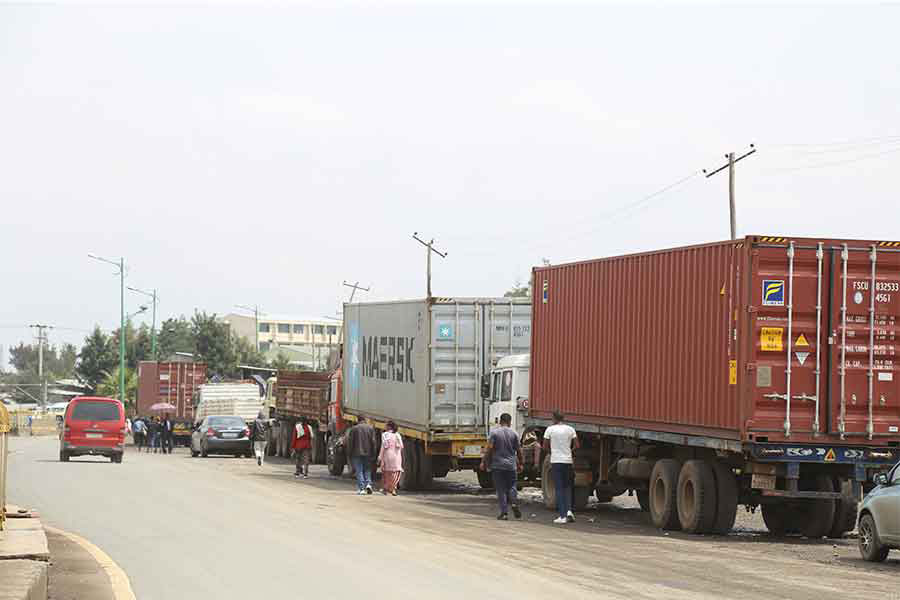
Radar | Feb 27,2021
Sep 2 , 2023
By Daron Acemoglu
At first blush, it may seem like good news that the BRICS (Brazil, Russia, India, China, and South Africa) group will expand to include Saudi Arabia, Iran, the United Arab Emirates, Ethiopia, Egypt, and Argentina. An 11-strong BRICS+ could be more representative of the world's emerging economies, providing a useful counterweight against American hegemony.
Yet, the announced enlargement represents a significant lost opportunity in many ways. The world does not need more countries to fall under Chinese and Russian influence or to align against the United States; rather, it needs a genuinely independent third grouping to counterweight against both the China-Russia axis and US power.
Because the enlargement includes only countries that already have friendly relations with China, BRICS+ is poised to be merely another tool of Chinese diplomacy. Rather than representing the interests of emerging economies, it will allow for greater Chinese involvement in them. Most likely, this will come at the expense of their workers and people; Chinese foreign investors tend to tolerate – or even encourage – corruption, reduced transparency, and wasteful megaprojects financed with loans that cannot be easily restructured.
Adding Saudi Arabia, Ethiopia, Egypt, Iran, and the UAE will turn the BRICS into even more of an "anti-democratic" club. Yet among the institutions that emerging economies most need to ensure their future economic and social success, democracy is high on the list. My work with Suresh Naidu, Pascual Restrepo, and James Robinson finds that democratisation, historically, has equipped countries to achieve faster economic growth within five to 10 years, reflecting increased investments in education, health, and other public services.
By contrast, Chinese engagement tends to hamper democratisation and even foment authoritarianism. With many emerging economies facing a "democracy crisis" and a growing number of countries experiencing weakening democratic institutions, the new BRICS+ threatens to pour fuel on the fire.
Now that the Sino-American rivalry is intensifying – and potentially reshaping the world order – emerging economies increasingly need their independent voice. After all, their interests are unlikely to be well served by worsening US-China relations and a reduction in their bilateral trade and financial flows. Equally, emerging economies need to be able to influence the future of artificial intelligence and other rapidly evolving digital technologies.
Even if the current enthusiasm around generative AI tools (such as ChatGPT) turns out to be mostly hype, rapid advances in AI and other communication technologies are still likely in the near term, and these will affect all countries, remaking the global division of labour. These technologies could have major negative implications for workers, especially in the emerging world, where countries like India are already exporting various white-collar services. Ultimately, both white- and blue-collar workers everywhere may end up competing not against expensive, highly educated labour in rich countries, but against AI-powered advanced software, machinery, and robotics.
The same technologies are also likely to restructure politics in many countries, as AI-powered social media and misinformation (including deep fakes and other manipulative technologies) increasingly influence public opinion and electoral politics. Most developing and emerging economies lack the supporting institutions to regulate and create guardrails against such disruptions.
New technologies are giving governments unprecedentedly powerful tools for surveilling their populations and suppressing dissent. Authoritarian regimes are already sharing technologies and techniques with each other. Recent research shows that Chinese surveillance technologies are rapidly being exported to other non-democratic countries, with Huawei alone exporting such goods to 50 countries. The future of technology is being shaped mainly by Chinese authorities, US tech giants (with a limited degree of regulatory scrutiny), and – increasingly – European Union rules.
None of these poles reflects the interests of the emerging world, and neither will BRICS+, which will most likely do China's bidding.
Fortunately, China's narrow selection of new members may have created an opening for a promising alternative to BRICS+ to emerge. Other major emerging economies – such as Indonesia, Turkey, Mexico, Colombia, Malaysia, Nigeria, Bangladesh, and Kenya – could form a truly independent bloc, hoping to ultimately attract Argentina, Brazil, India, and South Africa to join them. Though each of these countries has had its problems with democratic processes lately, their experience with democracy, together with their economic size, gives them common ground.
Even more to the point, they could collectively declare independence from China and the US, giving the wider emerging world a sorely needed voice in debates about the future of globalisation and technology. Such choices are far too important to be left to today's geopolitical rivals.
PUBLISHED ON
Sep 02,2023 [ VOL
24 , NO
1218]


Radar | Feb 27,2021

Fortune News | Nov 02,2019

Viewpoints | Aug 26,2023

Fortune News | Aug 06,2022

Fortune News | Jun 01,2019

Commentaries | Apr 20,2019

Commentaries | Sep 21,2019

Radar | May 25,2024

Radar | May 14,2022

Commentaries | Sep 27,2025

Photo Gallery | 176006 Views | May 06,2019

Photo Gallery | 166220 Views | Apr 26,2019

Photo Gallery | 156645 Views | Oct 06,2021

My Opinion | 136867 Views | Aug 14,2021

Dec 22 , 2024 . By TIZITA SHEWAFERAW
Charged with transforming colossal state-owned enterprises into modern and competitiv...

Aug 18 , 2024 . By AKSAH ITALO
Although predictable Yonas Zerihun's job in the ride-hailing service is not immune to...

Jul 28 , 2024 . By TIZITA SHEWAFERAW
Unhabitual, perhaps too many, Samuel Gebreyohannes, 38, used to occasionally enjoy a couple of beers at breakfast. However, he recently swit...

Jul 13 , 2024 . By AKSAH ITALO
Investors who rely on tractors, trucks, and field vehicles for commuting, transporting commodities, and f...

Oct 18 , 2025
The political establishment, notably the ruling party and its top brass, has become p...

Oct 11 , 2025
Ladislas Farago, a roving Associated Press (AP) correspondent, arrived in Ethiopia in...

Oct 4 , 2025
Eyob Tekalegn (PhD) had been in the Governor's chair for only weeks when, on Septembe...

Sep 27 , 2025
Four years into an experiment with “shock therapy” in education, the national moo...

Oct 18 , 2025 . By NAHOM AYELE
In a sweeping reform that upends nearly a decade of uniform health insurance contribu...

A bill that could transform the nutritional state sits in a limbo, even as the countr...

Oct 18 , 2025 . By SURAFEL MULUGETA
A long-planned directive to curb carbon emissions from fossil-fuel-powered vehicles h...

Oct 18 , 2025 . By BEZAWIT HULUAGER
Transaction advisors working with companies that hold over a quarter of a billion Bir...